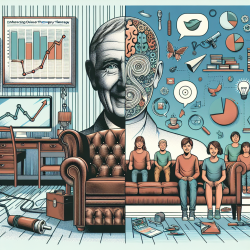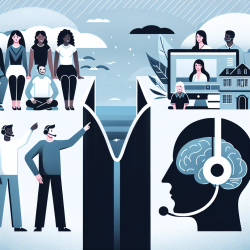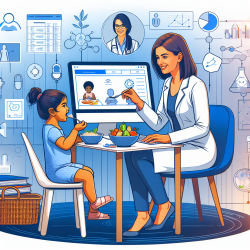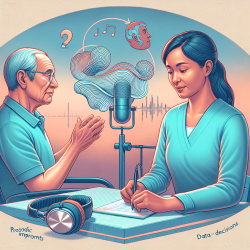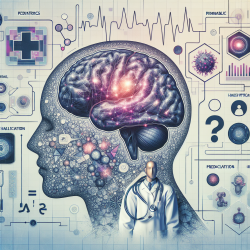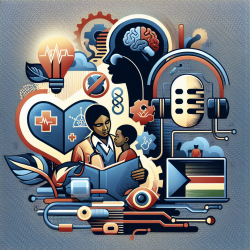In the field of speech-language pathology, particularly in online therapy services for schools, understanding historical psychiatric research can provide valuable insights. One such study, "Heroes and Hysterics: ‘Partisan Hysteria’ and Communist State-building in Yugoslavia after 1945" by Ana Antic, explores the socio-political and psychiatric implications of war trauma, specifically ‘partisan hysteria’. This blog post will delve into the findings of this research and discuss how practitioners can leverage these insights to improve their skills and outcomes for children.
Understanding 'Partisan Hysteria'
The research article investigates a unique form of war neurosis termed 'partisan hysteria', which affected Yugoslav partisan soldiers after World War II. Unlike traditional war traumas seen in other armies, this condition was characterized by epileptiform seizures and heightened combativeness rather than withdrawal or anxiety. The study highlights how socio-economic and educational backgrounds influenced the manifestation of this disorder, primarily affecting uneducated and immature soldiers thrust into significant political responsibilities.
Key Takeaways for Practitioners
1. Socioeconomic and Educational Contexts Matter
The research underscores the importance of considering the socioeconomic and educational backgrounds of individuals when diagnosing and treating disorders. For online therapy practitioners, this means:
- Personalized Approaches: Tailoring interventions to consider the child's background can enhance the effectiveness of therapy.
- Comprehensive Assessments: Incorporating socio-economic and educational assessments in initial evaluations can provide a holistic understanding of the child's needs.
2. Holistic Treatment Approaches
The study contrasts two psychiatric approaches: the biomedical model and the psychodynamic model. The latter, which considers unconscious conflicts and socio-political contexts, proved more effective in treating 'partisan hysteria'. Practitioners can apply this by:
- Integrating Psychodynamic Principles: Utilizing psychodynamic approaches in therapy can address deeper, underlying issues rather than just surface symptoms.
- Collaborative Care: Working with other professionals (e.g., educators, psychologists) to provide comprehensive care that addresses both psychological and social factors.
3. Education and Empowerment
One of the key recommendations from the study is the need for education and empowerment to mitigate psychiatric issues. For online therapy:
- Educational Interventions: Incorporating educational components in therapy sessions can empower children and their families.
- Parental Involvement: Educating parents about the importance of their role in therapy and providing them with tools to support their child’s progress.
Encouraging Further Research
The findings from this historical study can inspire practitioners to conduct further research in their practice. By investigating how socio-economic and educational factors influence therapy outcomes in modern contexts, practitioners can contribute to the development of more effective, data-driven interventions.
Conclusion
The insights from "Heroes and Hysterics: ‘Partisan Hysteria’ and Communist State-building in Yugoslavia after 1945" highlight the importance of a holistic, socio-politically informed approach to therapy. By integrating these principles, online therapy practitioners can enhance their practice and create better outcomes for children.
To read the original research paper, please follow this link: Heroes and Hysterics: ‘Partisan Hysteria’ and Communist State-building in Yugoslavia after 1945.
